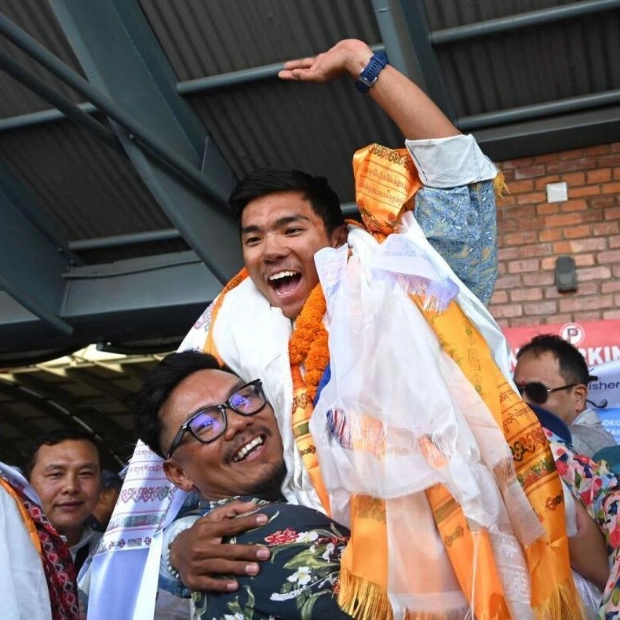Narendra Modi took the oath for his third consecutive term as India's Prime Minister on Sunday, marking a historic moment as he ties the record with Jawaharlal Nehru. However, this term comes under the leadership of a more restless coalition, following a surprising electoral setback that challenges his ability to maintain policy stability in the world's most populous country. President Droupadi Murmu officiated the swearing-in ceremony at Rashtrapati Bhavan in New Delhi, which was graced by thousands of notable attendees including leaders from seven neighboring countries, Bollywood celebrities, and industrialists. Modi, originally a promoter for the Hindu nationalist Rashtriya Swayamsevak Sangh (RSS), the ideological foundation of his Bharatiya Janata Party (BJP), secured his third term with the support of 14 regional parties within the BJP-led National Democratic Alliance (NDA), a contrast to his previous majority wins. This result is considered a significant setback, as earlier surveys and exit polls had anticipated a stronger victory for the BJP. Despite achieving remarkable economic growth and enhancing India's international status, Modi faces domestic challenges such as insufficient job creation, high prices, low incomes, and religious tensions that influenced voters' decisions. His governance as Chief Minister of Gujarat from 2001 to 2014, where BJP held strong majorities, allowed for decisive leadership. Analysts predict that Modi's new term will involve navigating complex political and policy issues, balancing the diverse interests of regional parties and a more robust opposition. Concerns also arise regarding the fiscal stability of India, the world's fastest-growing economy, due to demands for increased state development funds and potential welfare spending by BJP to regain voter support. Following the election, which featured religious campaign rhetoric and criticism of the opposition's alleged favoritism towards India's Muslim minority, Modi has adopted a more conciliatory approach, emphasizing the importance of unanimity in governing the country.

Text: Lara Palmer
11.06.2024
India's Prime Minister Faces New Political Landscape After Surprising Electoral Setback





